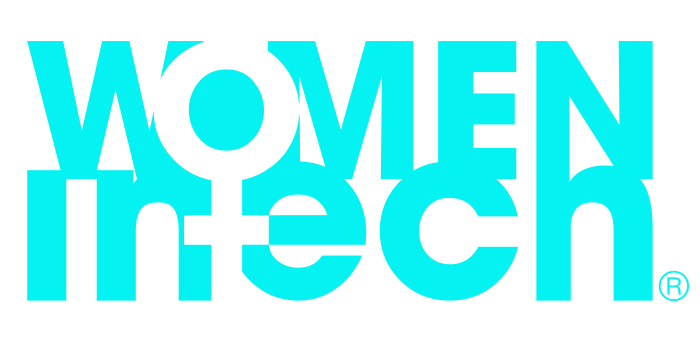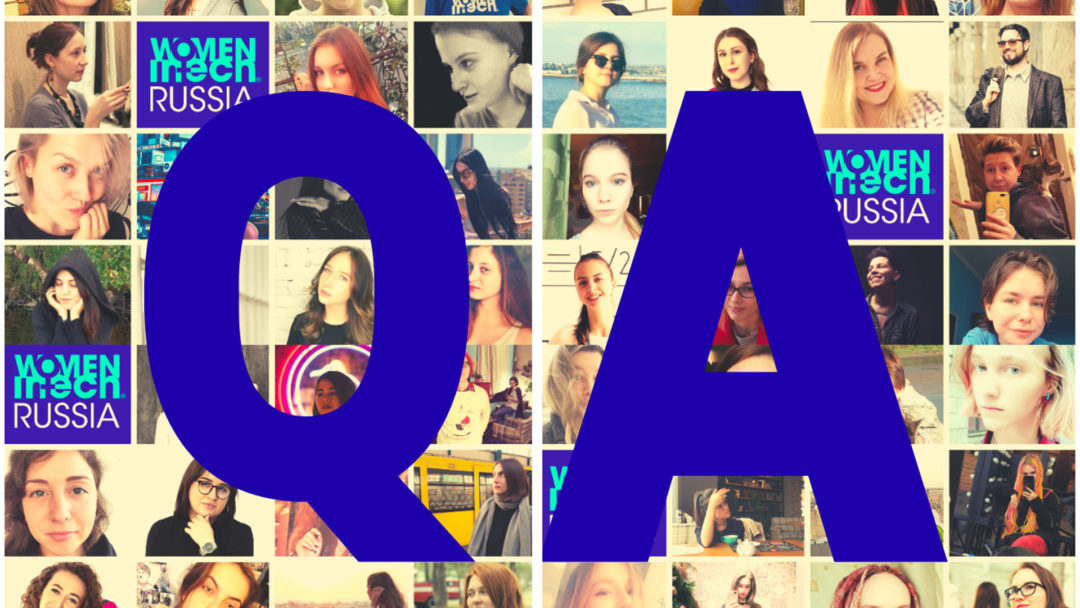After Women in Tech Russia’s “Ways to IT” meetup in February, we collected feedback. One girl said:
“It’s really cool that you do these motivational speeches and encourage girls, but I’d be happier if you had shown us how exactly we can acquire new knowledge, and how to start working in tech”.
We brainstormed how to address this gap, and came up with the idea of the 4-week course QA School. The program consisted of 4 lessons; each including 1 or 2 lectures. Our goal was to introduce women to test engineering, and help them gain enough knowledge to decide whether they want to pursue a career in e QA, and, if yes, the roadmap.
Anastasia Zarechneva created a syllable for the course:
- Introduction to test engineering:
- The role and tasks of a test engineer;
- Self-education and self-development as a test engineer.
- Test design techniques:
- Test analysis and basic test design techniques;
- Combinatorial and high-level test design techniques.
- Testing documentation and testing tools:
- Testing documentation;
- Testing tools: TMS, bug, and task trackers.
- Applications, extensions, and tools to automate the test engineer’s routine.
Now we had a program, we needed space, lecturers, and students. For space, we partnered with a co-working place but, unfortunately, the COVID-19 pandemic had its own plans. Thus, we were not able to organize real-life classes, and decided to use the benefits of modern technologies, moving the course online. It seemed like a compromise, but in fact brought benefits, for example, we had an opportunity to invite more girls from other cities, not only Saint-Petersburg.
Finding lecturers was not a challenge – we already had a bunch of volunteers and mentors who desired to share their knowledge.
Our brilliant lecturers were:
- Igor Gross, QA Lead at Test IT;
- Kristina Kocherina, QA engineer at Yandex.Market (https://www.linkedin.com/in/lapkina-kocherina/);
- Solveyga Azbite, QA engineer at Noveo;
- Yulia Gorshkova, QA Lead at Softmachina (https://www.linkedin.com/in/yugoru/);
- Angelina Makukha, Senior QA engineer at Noveo;
- Oleg Asmalouski, Senior QA Automation at Test IT;
- Marina Remneva, QA Lead at Wrike (https://www.linkedin.com/in/marina-remneva-b9171534/).
When the place, the lecturers, and the program were settled, we opened a call for students. The application form includes questions about background and motivation. As the school was free of charge, we needed to make sure every participant was dedicated and passionate about new subjects and would see the School through.
We received roughly 200 applications, so it was pretty tough to choose only 60 of them. We prioritized applicants who are not familiar with IT and STEM because one of our aims was to show that this domain is not scary, over-complicated or «not for girls». Also, we chose those with goals and expectations that corresponded with the School. For example, we had to refuse the applicants who expected lots of coding tasks or test automation lectures, as this was not planned, and it would probably disappoint or decrease one’s interest in test engineering.
We gathered students in the group chat where they could network, get feedback from mentors, and share insights from the experience.
After 4 weeks of lectures, the students had a final task: explore a website, write a plan for testing it, test it according to the plan, report bugs, and make a quality overview. We reviewed their work, provided feedback to the students individually, held a graduation party, and distributed certificates.
The course was a success. Students were satisfied with the energy, positive attitude, and wide experience of our lecturers, as well as the well-structured program, and useful links to sources of information. As course administrators, we also identified a key growth area: practical tasks, which we plan to include more of, with the next series.
After the course was completed, we placed it online on the Stepik platform https://stepik.org/course/73926. Here it has over 2000 students and counting. We love seeing how our work continues to help people and watching positive reviews.
We would like to thank our wonderful team, lecturers, and partners, without which this wouldn’t be possible: Test It (http://testit.software/), Stepik (https://stepik.org/), and Prosto (https://www.xn--90azaccdibh.xn--p1ai/).
In conclusion, we would like to share the story of Victoria Moiseichik who found her first job as a test engineer after completing the course:
“I was scared to go into the QA field because I didn’t believe in myself and was intimidating by the high competition. The course became a practical guide into mastering tools and theory as well as a source of motivation and self-confidence. The motivation of the lecturers, their inspiring examples were a game-changer for me. I’m so happy that in one month after completing the course, I got a job offer as a test engineer! My team leads are satisfied with the work I do. I am grateful to the School that led to such great results. Thank you!”
What is the next step? We are preparing to launch the QA School 2nd edition. New and improved! Stay tuned!


